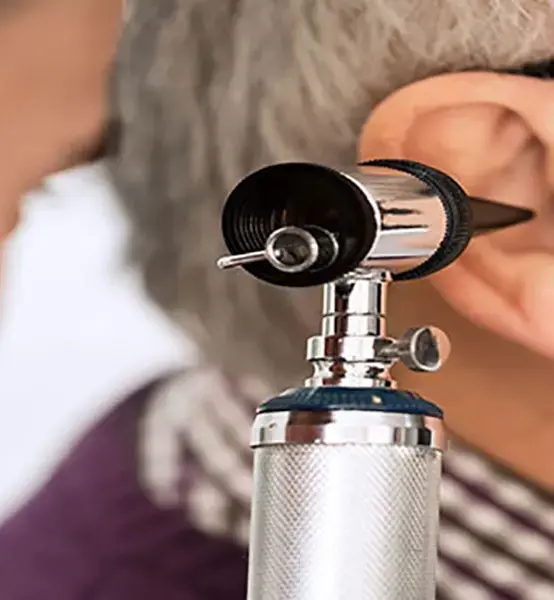
Tinnitus: Everything You Need to Know About Noise-Induced Hearing Loss
Tinnitus is a common complaint. If left untreated it can become a huge burden on you and your loved ones. To help you understand your rights and the compensation process, we gathered everything you need to know about tinnitus.
What is Tinnitus?
Tinnitus is a high-pitched buzzing, ringing or humming in the ears. This condition is quite common and with regular exposure to loud or excessive noise, it can become permanent and lead to hearing loss. If you feel you may have tinnitus as a result of a noisy work environment, we have the specialist legal support to help you get the compensation you deserve.
Tinnitus can be constant or intermittent (occurring occasionally) and is often most noticeable when in a quiet space. From a mild buzz through to a constant high-pitched ring, it can affect daily lives and sleeping patterns. The initial symptoms of tinnitus can be slow to develop and may only become clear after years of work. You may have discovered that you find it difficult to pick up background noise, or that you listen to the radio or television much louder than you did in the past. These are all potential signs of tinnitus and could be due to poor working conditions.
Tinnitus is often caused by working in industries with excessive noise. Industries such as manufacturing, agriculture and construction are often guilty of exposure to excessive noise in the workplace.
It is important to remember the difference between tinnitus and phase change. Phase change is a short-term effect while tinnitus is persistent. Phase change is often experienced by concert-goers and will usually clear up after several hours.
What Should I Do If I Have Symptoms?
- The first thing you should do is consult a GP as soon as possible. Your GP will refer you to an Ear, Nose and Throat (ENT) specialist for an audiogram. The audiogram, or hearing test, will test and interpret any symptoms and determine whether you have suffered from noise-induced hearing loss. The audiogram tests two ways of hearing, namely; air conduction hearing and bone conduction hearing. Air conduction is the normal way you hear, with your eardrum picking up vibrations in the air. The audiologist will often play various frequencies through headphones and test your responses. Bone conduction tests your ability to pick up frequencies on the thick bone directly behind your ear. Your audiologist will test your ability to hear sound based on vibrations to the bone and map the results for your ENT specialist to analyse.
- Your ENT specialist will report on the findings and tell you if you are suffering from tinnitus.
- At this point, or anytime you first notice the symptoms, you should keep a diary. This diary should cover every instance of pain or discomfort, from hearing loss to acute ringing in the ear, and could prove useful when building a case.
- Once you are certain you have suffered noise-induced hearing loss or tinnitus, you should contact an industrial disease claims lawyer to start building a case. Our top-notch lawyers are on hand to give you jargon-free advice and work on a no win, no fee basis.
- The legal time limit to commence court proceedings for compensation is 3 years from the date that you were first aware of a significant problem and you had enough information to link the symptoms to your noise exposure.
5 of the Most Frequently Asked Questions
When does the three-year time limit start?
Tinnitus can take years to develop and it can be difficult to determine the exact date. Even though there is no fixed date, it is important to consult a GP and legal expert as soon as possible to ensure you don’t fall outside of the time frame.
Will I have to go to court?
In almost all cases, the case can be settled outside of court.
In the event that you do go to court, our legal team will help and represent you every step of the way.
What can I do if the company that is responsible for my claim is no longer trading?
This is very common and there are ways around it. Your claim will be made against the company’s insurer and there is a database available to help us trace the relevant insurance company.
Do I need a medical exam or will my medical record be enough?
Although your medical records will be helpful in building a case, an independent medical expert is essential.
How much compensation will I get?
The likely amount of compensation is based on an assessment of the extent of your hearing problems and its effect on your quality of life, apart from recovering any expenses or financial losses that you may have suffered as a result. This requires expert legal assessment and we will advise you at an early stage on the likely maximum amount of your claim, but on average claims for hearing loss and tinnitus are worth at least several thousand pounds depending on the severity of the symptoms.
At Smith Partnership, we have dedicated teams of lawyers to help you seek the compensation you deserve. Call one of our local offices and our experienced staff will meet with you at a convenient time and place in person or over the phone to discuss your potential claim.
If you’d like to find out more about the legal services offered by Smith Partnership, don’t hesitate to contact us via info@smithpartnership.co.uk. Alternatively, speak to a member of our team directly on 0330 123 1229.

Share this article






















